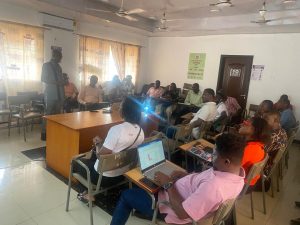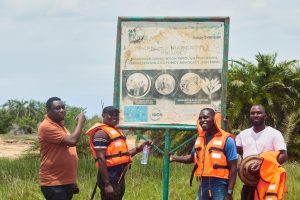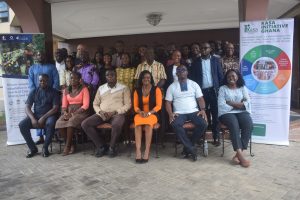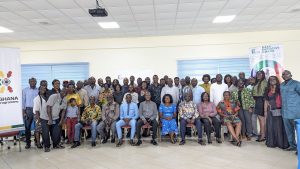More than 800 forest guards of the Forestry Commission have undergone military training to acquire skills to tackle increasing cases of poaching, illegal mining and illegal chains saw operations in the country’s forest reserves.
The three-week exercise which was conducted at the Asutuare Military Training School in the Greater Accra Region is meant to help reduce deaths and injuries among forestry guards.
Citing a recent incident of a guard who was shot and injured at the Kakum National Park in the Central Region last Thursday, the Deputy Chief Executive of the Commission, Mr John Allotey, said such acts happened because the officers did not have the requisite skills to defend themselves.
“Henceforth, all these unfortunate events will become a thing of the past. No longer will any staff lose their life because they were protecting the nation’s natural resources which are of high benefit to the present and future generation,” he said at the graduation of the fourth batch of 149 trainees.
The guards, who are from the Wildlife Division of the commission, were taken through training in drills, weapon handling, voice procedures living in the jungle, health in the jungle, obstacle crossing, unarmed combat, rules of weapon engagement, first aid lessons and jungle survival activities.
Danger
Mr Allotey said the daily activities of the frontline staff of the commission exposed them to people involved in practices such as illegal harvesting of wood, mining and poaching who were often militant and also carried weapons which they used in attacking staff of the commission.
“Those involved in those illegal activities are becoming more aggressive and are equipped with sophisticated weapons. We need to train our people on weapon handling to boost their morale and improve upon their physical state and capacity to deal with these challenges,” he added.
Mr Allotey also said the people had become so daring that, they warned the commission’s staff at the Mole Park in the Savannah Region that they would attack the park and cut down trees and poach animals.
“We have to be prepared. We sent the military there to conduct a recce for us to be abreast of the development and they confirmed that the situation was serious and that it must be dealt with,” he stated.
Mr Allotey further mentioned other areas under threat from poachers and illegal timber harvesters to include the Prameso Forest Reserve in the Bono Region and the Bonsam Bepo Forest Reserve in the Ahafo Region.
“These are critical areas that have come under attack and we have to protect them,” he said.
On illegal felling of Rosewood, Mr Allotey said protecting the tree species had become an important task for its officials, particularly those in the five regions of the north.
Appreciation
He expressed appreciation to the Ghana Armed Forces for its commitment to support the commission carry out its duties, and the trainees for enduring the military training exercise.
Mr Allotey advised them against using the new skills they had acquired to bully innocent people and warned that any official of the commission who held him or herself up as a soldier would be dealt with.
Advice
The Commander Rear of the Asutuare Military Training School, Major Frank Agyeman, and the Chairman of the Board of the Forestry Commission, Brigadier-General Joseph Odei (retd), urged the trainees to hold high the military standards and discipline instilled in them
Source: www.graphic.com.gh






